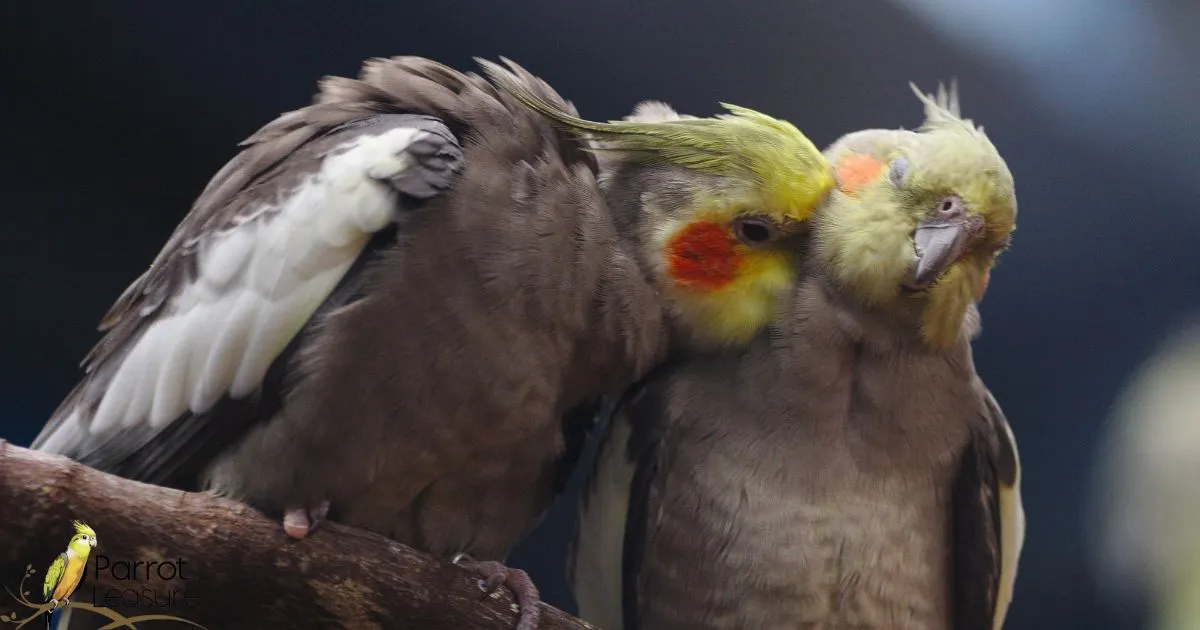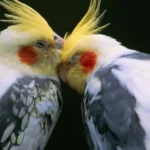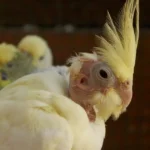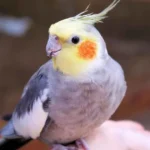Cockatiels are gorgeous birds with vivid feather variations. These birds have soft, silky feathers in colors that range from gray to white, to yellow. Their appearance would suffer if something were to happen with these delicate wisps. Ensuring Your Cockatiel Feathers Stay in Good Shape is Important to Keep them Comfortable and Happy.
Are there any bald patches or featherless areas? If so, you’re not alone. If you have a cockatiel, you are likely to be somewhat worried about the condition of their feathers. The good news is they will. Will My Cockatiels Feathers Grow Back? is just a few lines away. Keep reading to find out and receive priceless tips on caring for your pet.
Cockatiels, like many birds, naturally molt their feathers at regular intervals. This cycle is necessary, not only to have healthy plumage but as humans with our old, worn feathers replaced by new vibrant ones. If you take care of it properly with a healthy diet, enough exercise, and a relaxed environment, then its feathers will start growing back.
Understanding the Cockatiel’s Feather Cycle
Cockatiels follow a natural shedding cycle of their feathers. This cyclic routine of losing old ones and the growth of new feathers then takes place. Understanding this process is important to preserve the health and vitality of your cockatiel. When your cockatiel is molting, it may look somewhat scruffy or raggedy as this is all part of the renewal process.
Feather molt can happen once or twice a year as the calendar changes from one season to another. A balanced diet is crucial to the healthy feather growth of your cockatiel during this period. Sufficient rest, stress-free environment and grooming methods can also contribute to a smooth and successful molt.
Common Causes of Feather Loss in Cockatiels

Cockatiels are known to lose their feathers and some reasons why it happens are. A poor feather coat and too much molting may also be due to nutritional deficiencies, especially protein, vitamin, and mineral deficiencies. Another happening amongst cockatiels, who are in general delicate birds and are known to pluck their feathers when they are sick, is stress.
Feather loss in birds can also be due to medical issues including parasites or bacterial, fungal, or hormonal problems. Feather damage and loss can also be the result of improper housing conditions, such as overcrowding, inadequate perching, or low humidity levels in cockatiels.
Providing a Healthy Environment for Cockatiel Feather Growth
Cockatiel feather growth is largely dependent on a healthy living environment. Keep their cage large, clean, and drafty. Because of this, a wide variety of perches should be provided in different shapes and sizes to prevent damage to the feet and feathers.
Keep the correct temperature and humidity levels, not sitting near a draft or being too dry. Feathers need optimal, stress-free growing conditions. Provide a selection of bird-friendly, safe toys that you can use to stimulate natural foraging and preening.
Allow exercise and foraging opportunities, inactivity and boredom can result in feather plucking, self-mutilation, or other harmful type of behavior. Exposure to natural sunlight or full-spectrum lighting provides the bonus of keeping them clean and healthy, plus boosting their overall wellness.
The Role of Diet in Cockatiel Feather Regeneration
For cockatiels to grow healthy feathers, they need a balanced diet that is rich in high-quality protein, vitamins, and minerals. This page links your bird to a great deal of Feeding for feathers is an important subject. Feathers are protein, so do offer seeds, pellets, and cooked eggs! Vitamin A and calcium are also important elements in the development of new feathers.
Poor diet results in poor-quality feathers and slow new growth. Consult an avian vet to find out your cockatiel’s specific needs since these can vary by age and level of activity. Good nutrition promotes great feathers and better general health.
Related To This Post: Why Is My Cockatiel Losing Feathers?
Cockatiel Feather Molting: What to Expect

Cockatiels molt old feathers to grow new ones all over their body, annually. The natural process takes weeks or months. You will notice more feather loss and pin feathers coming in. Irritability and lethargy as your bird molts
Molting is natural and necessary for good-quality feathers. High-Protein Diet + Minimal Stress We conduct a thoughtful and informed Atlanta cockatiel molting ritual ceremony because the Mrs. needs to top off her lustrous beauty after molting.
Addressing Behavioral Issues Affecting Cockatiel Feather Condition
Feathering In Cockatiels: Behavioral Issues Birds will often feather pluck, which is a well-known issue for boredom, stress or underlying medical issues. This destructive behavior can be mitigated by providing many toys, a variety of perches, and opportunities for socialization
Behavioral concerns like mutilation, where the cockatiel actively cuts its feathers to suggest excessive preening or barbering. How to cope with stress, hormonal imbalance, or even a compulsive disorder.
The introduction of optimal food, the correct size cage, and numerous toys will redirect this behavior. If you suspect any other potential reason for her mutilation, seeing an avian vet can help rule it out.
When to Seek Veterinary Assistance for Cockatiel Feather Problems
Seek veterinary care if the bird is pulling too many feathers. Bald patches, shedding large amounts of feathers or relentless plucking should be seen as warning signs and prompt veterinary intervention. Feather plucking can be caused by a poor diet, hormonal imbalances, or stress. The cause can be diagnosed and treated by a certified avian veterinarian.
If the feathers do not appear to be improving in a few days or if they begin to look worse, being scheduled for a vet visit is important. Sudden management prevents more havoc on your health problems. For a healthy regrowth, you should follow medication recommendations, dietary changes, or environment adjustments that the vet gives. Early intervention helps British cockatiels get back on track and maintain their beautiful plumage.
Cockatiel Feather Grooming and Care Tips
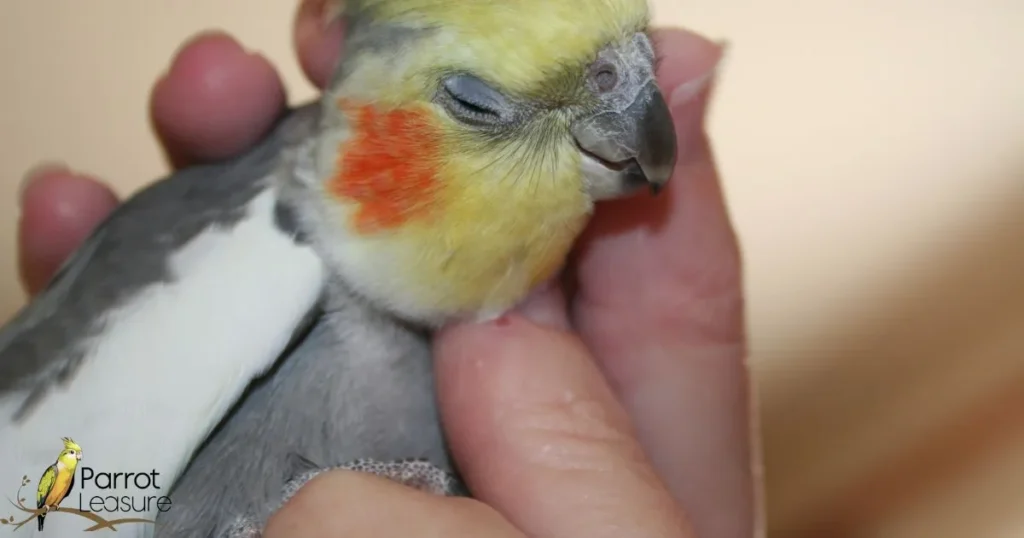
Proper grooming and care are essential for maintaining your cockatiel’s vibrant feathers. Provide a spacious cage with natural perches to prevent feather damage. Mist your cockatiel regularly to maintain feather moisture and condition. Offer a shallow bath or spray mist for preening and cleaning.
Avoid over-trimming feathers, as this can disrupt the natural growth cycle. Regularly check for any signs of feather plucking, fraying, or abnormalities. Provide a varied diet rich in vitamins and minerals to support healthy feather growth.
Create a stress-free environment by minimizing noise, offering hiding spots, and providing plenty of toys and activities. With proper care, your cockatiel’s feathers will remain soft, sleek, and beautiful.
Creating a Stress-Free Haven for Your Cockatiel’s Feather Health
Cockatiels thrive in a stress-free environment. Stress can lead to feather plucking and hinder regrowth. Provide a spacious cage with toys and a consistent routine. Place the cage in a quiet area away from noise, drafts, and direct sunlight.
Interact daily but respect boundaries. Offer a nutrient-rich diet for healthy feathers. Provide perches and toys for natural behaviors. Monitor for stress signs like excessive screaming or plucking, and address the cause promptly.
The Importance of Patience in Cockatiel Feather Regrowth
Patience is key when it comes to cockatiel feather regrowth. Feathers don’t regenerate overnight. It’s a gradual process that requires time and understanding. Rushing or forcing the process can lead to further stress for your feathered friend.
Depending on the extent of feather loss, it may take weeks or months for full plumage renewal. Provide a calm environment, a balanced diet, and minimal disturbances. With proper care, your cockatiel’s vibrant feathers will eventually regrow.
Celebrating Your Cockatiel’s Stunning New Plumage
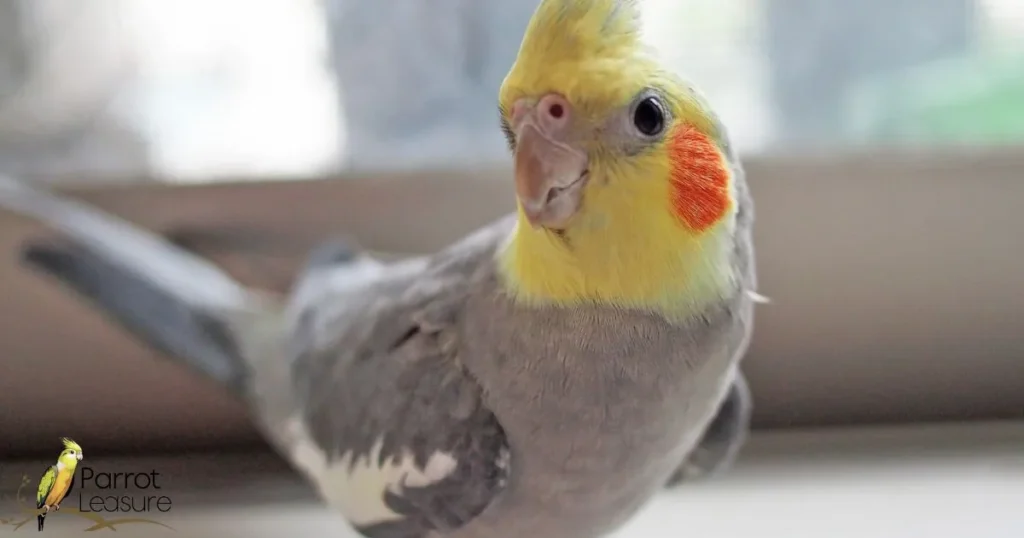
After weeks of patience and proper care, your cockatiel’s stunning new plumage is a sight to behold. The vibrant colors and sleek feathers are a testament to your dedication. Take a moment to appreciate the beauty of your feathered friend.
Their fresh, healthy appearance will bring joy to your household. Celebrating your cockatiel’s revitalized look can be a special occasion. Consider treating them to a new toy or perch to explore.
Capture their radiant plumage with photos or videos to cherish the moment. Share their transformation with fellow bird enthusiasts, inspiring others on their journey to optimal feather health.
FAQ’s
Can a bird survive after losing feathers?
Birds cannot replace every feather at once; they’d lose their ability to fly, to maintain body temperature. Instead, they replace feathers in their wings and tails just a few at a time.
Is it normal for a cockatiel to lose feathers?
As long as the bird doesn’t have bare spots, the feathers loss is normal.
Do birds feel pain when they lose a feather?
Actual feather plucking may have behavioral origins as well. However, as pulling feathers out is actually painful to birds, this represents a serious behavioral abnormality.
How to treat feather loss in birds at home?
Changes in the cage or more attention can and usually does help. A companion bird may be the solution (although sometimes it will make things worse!).
Do birds bleed when they lose a feather?
If a pin feather is damaged, a bird may bleed heavily. The bleeding may stop on its own, but if there is a constant drip of fresh blood, contact an avian veterinarian ASAP.
Final Thoughts
Your Cockatiel’s Feathers Will Come Back With Good Care and Time Feed a healthy diet, offer a quiet living environment, and manage any medical problems in the background. When this new plumage blossoms, celebrate in all of its beauty as proof that you have done your utmost to be a caring comp.
